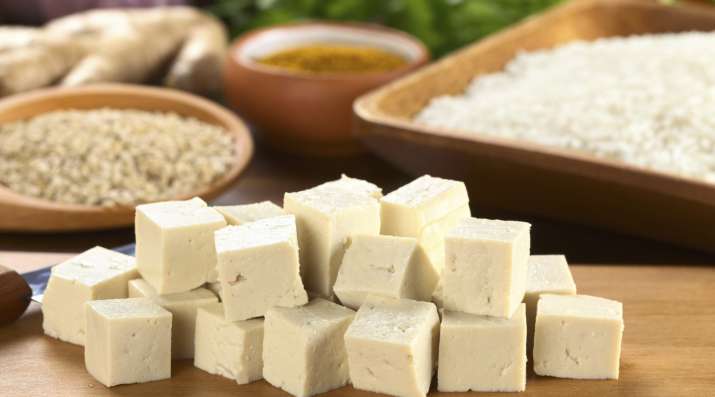The benefits of soy protein aren’t new to us. Many Indian households consume soybeans, making the topic of the benefits of soy protein familiar. Vegans and vegetarians are increasingly choosing it together in the fitness world as well, thanks to its growing popularity.
Vegans, vegetarians, and those who are lactose intolerant or allergic to dairy products often turn to soy protein as a major source of this essential nutrient. Try soy protein if you like the taste or eat a plant-based diet.
What is soy protein?
Legumes like soy are sources of plant-based soy protein. No cholesterol and very little saturated fat make it a great protein choice for both vegetarians and vegans as well as for those who avoid dairy products. As a low-fat, cholesterol-free meat protein substitute, it is the best choice for vegetarians.
Types of soy protein
It comes in three forms: isolate, hydrolyzed, and recombinant.
Isolate soy protein: A higher level of refinement and processing has been added to this product line.
Soy protein concentrate: Soy protein concentrate is made by removing the carbohydrates from dehulled soybeans.
Textured soy protein: In animal-based sources, this is usually found as a textured soy protein.
Nutritional information on soybeans
Beans are rich in protein, fat, and carbohydrates. Approximately 36g of protein, 20g of fat, and 30g of carbohydrate are found in every 100 g of raw soybeans, according to the USDA Food Composition Database.
There are different ratios for different products – As an example, a protein shake made from soy protein isolate will have a different composition than a burger made from soy protein isolate
Soybeans are high in protein, Vitamin C, and folate, all of which are essential nutrients. In addition, it’s a good source of thiamine as well as calcium and iron.
One ounce (28 grams) of soy protein isolate powder contains the following nutrients (1):
Calories in 1 serving: 95
1 gram of fat
There are 2 grams of carbs
1.6 grams of fiber
23 grams of protein are included in this recipe
Contains 25 percent of the daily recommended intake of iron (DV)
How many grams of soy protein does our body need to function properly?
Individuals must consume at least 25 grams of soy protein per day in order to see a difference in their health. Soy protein in the amount of 25 grams is equivalent to 114 cups of tofu, 1–2 cups of soymilk, or an ounce of soy flour.
Reduces the risk of heart disease
As a result of consuming soy protein, total cholesterol and triglycerides are reduced, reducing the risk of heart disease. To maintain a healthy heart, you should consume soy protein on a regular basis. A healthy heart, as well as veins, will also benefit from this exercise, as well as the reduction of cholesterol.
Boost energy
In soy milk or tofu, you’ll find a lot of essential amino acids. In our bodies, these amino acids are converted into energy.
Reduce menopausal symptoms
There is a plant estrogen in soy called isoflavones that is similar to the human estrogen hormone, but less potent. It is common for women to take these plant-based estrogens to reduce the symptoms of menopause. Protect women from bone loss and aid in heart health. Soy proteins contain phytoestrogens, which help to maintain calcium levels in the body and stronger bones.
Improves skin
Different cosmetics and lotions that moisturize your skin contain soy proteins. The pigmentation caused by sun exposure and hormonal changes can also be reduced with these products. Soy proteins give skin a flawless, shiny appearance.
Reduces cholesterol
Soy protein is beneficial to your health because it lowers bad cholesterol and increases good cholesterol levels. Blood serum cholesterol levels are decreased by soy protein. Basically, it prevents the accumulation of cholesterol-containing fat in your cells, tissues, and bloodstream. Soy protein powder has a number of health benefits, including less saturated fat compared to animal-based products and vitamins, which make it a good choice for lowering cholesterol.
It increases the rate of muscle growth
As a result of daily consumption of soy proteins, lean muscle breakdown is reduced, and healthy muscle growth is promoted. Soy, according to one study, increases muscle strength and mass by stimulating muscle protein synthesis.
Conclusion
Soy protein is a complete protein and is a good source of iron and phosphorus. Soy is generally considered to be safe for the majority of people, and it may have health benefits, such as weight loss, as well.
